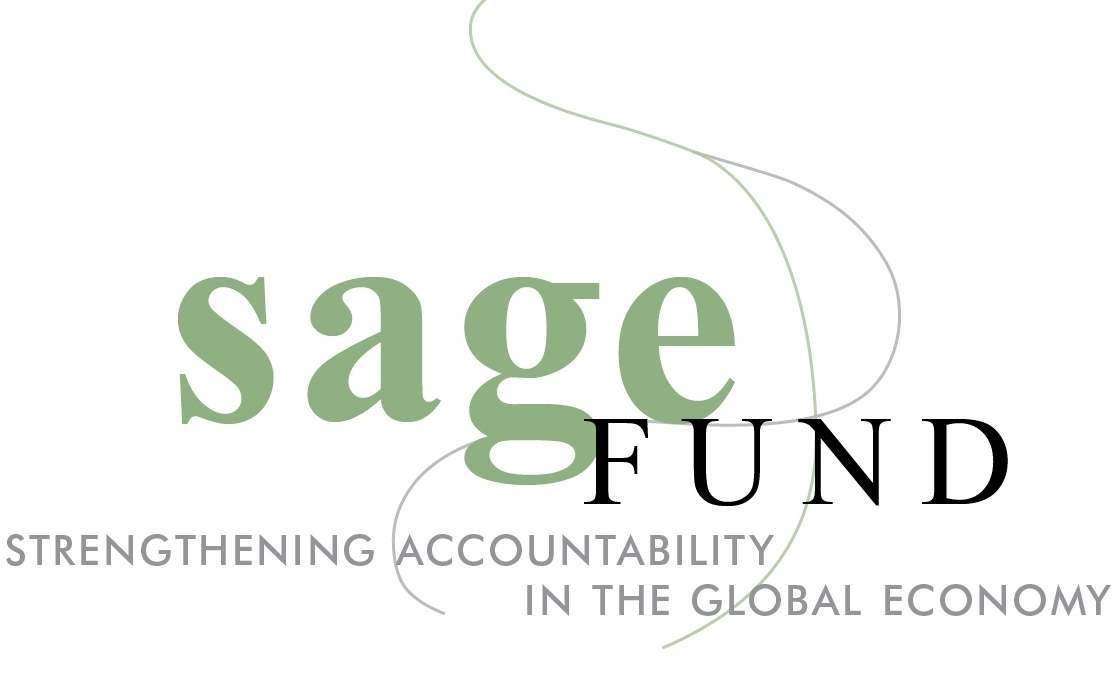ALL Learning
women and extractivism
Around the world, communities impacted by extractive industries—mining, drilling, logging—face multiple and intersecting forms of violence. That violence is gendered in its operation and in whom it benefits and harms. Building Power In Crisis explores the breadth of structural violence created or reinforced by extractivism, from political violence against women environmental defenders to economic violence that threatens women’s livelihoods. Centering the experiences of women and girls in frontline communities, the report lifts up their strategies to resist extractive development and lead with bold and sustainable alternatives.
STRENGTHENING & SCALING TOOLS FOR CORPORATE ACCOUNTABILITY
The SAGE Fund brought together a cross-section of organizations, including those as part of SAGE’s first round of grants, that have developed research and advocacy tools for strategic corporate research, investment or supply chain mapping, and financial sector advocacy. The objective of the learning convening was to explore the ways in which these tools equip affected communities and civil society organizations to identify more powerful pathways for holding corporations and other economic actors accountable for human rights and environmental harms from their investments. Based on this stocktaking exercise, the meeting identified opportunities for further strengthening the impact and scaling the use of these tools.
Women on the Frontlines of Extractivism
Drawing on and synthesizing independent research conducted by the SAGE Fund, the Global Alliance for Green and Gender Action (GAGGA), and the Global Greengrants Fund, Women on the Frontlines of Extractivism—the product of a cross-field collaboration between these funders—uplifts the strategies and grassroots actions of women leading the fight against extraction. This report also identifies opportunities for support, while seeking to foster a shared understanding of the underlying systemic causes of the resulting harm, and lays the groundwork for a collective response from funders.
RETHINKING CIVIC SPACE
A near-perfect storm of monumental and intersectional crises is gathering: intensifying economic and social inequality, rising populism and authoritarianism, a growing ecological crisis with the prospect of irreversible climate change, and the proliferation of new technologies including “artificial intelligence” (AI) that are being controlled or abused by malign actors. All of these trends appear to be nearing a “tipping point”, with significant implications for civic space. In this paper, the Funders Initiative for Civil Society (FICS) elaborates a strategic framework through which independent funders could respond more effectively to the phenomenon of closing civic space through collaborative and targeted interventions.
Future of Work RoundTable
Building on the 2018 Quality Work Worldwide report, the Ford Foundation partnered with Open Democracy, along with the SAGE Fund and the Open Society Foundations, to host a virtual roundtable to spur new ideas, necessary innovations, and dynamic conversation across the field. Those ideas and exchanges are captured in a Future of Work Roundtable.
Funders’ Field guide
The global system of international investment, trade, and development has produced many economic gains and, at the same time, contributed to significant human rights violations and environmental damage. This resource for donors, developed by the SAGE Fund, explores how the field is responding to this trend: by pushing to find concrete ways to hold non-state and state actors accountable to human rights obligations.
Quality Work Worldwide
The barriers to quality work are systematic and global in nature, and require a global analysis of interrelated trends and transnational flows of capital and labor in order to produce a more comprehensive diagnosis of the problem. The Ford Foundation undertook a two-year global exploration on quality work, partnering with the SAGE Fund to provide strategic input and guidance. The exploration identifies opportunities to build collective power and solidarity across contexts, and leverage strategies across global supply chains and migration corridors. A resource for donors and civil society captures the insights generated by this process, and identifies opportunities for collaboration and further strategy development across fields and sectors.







